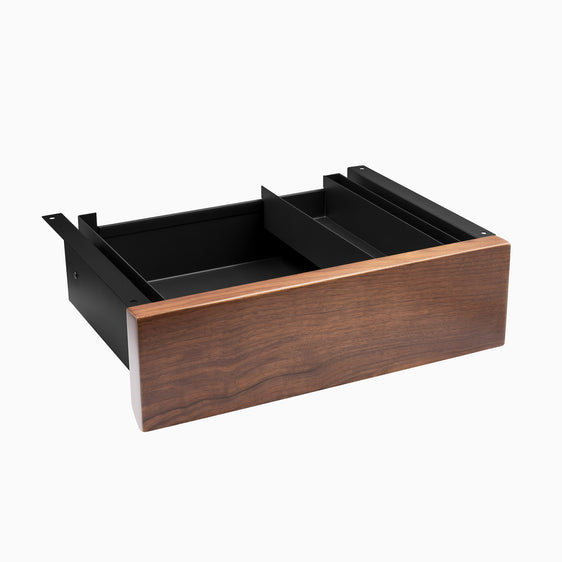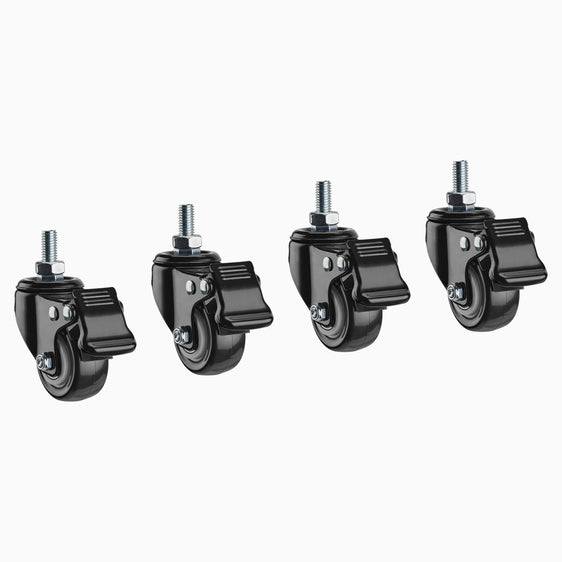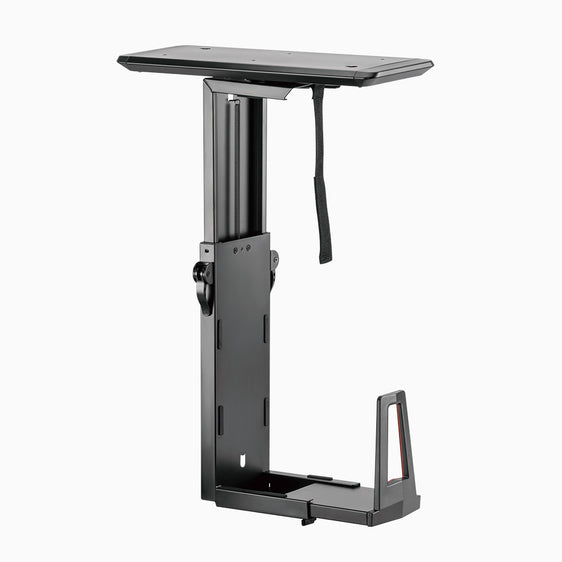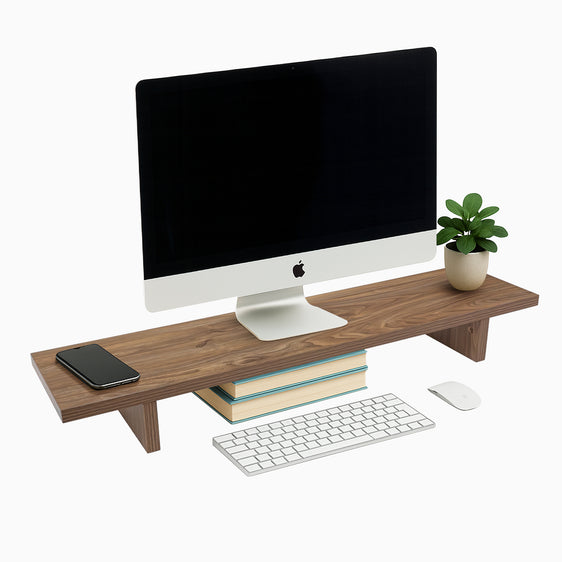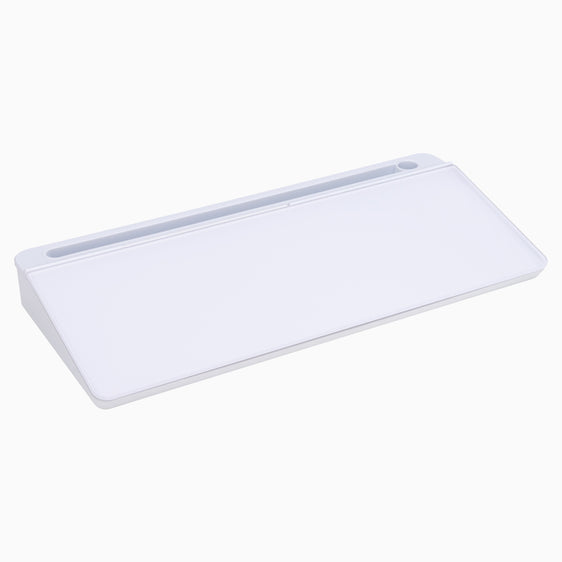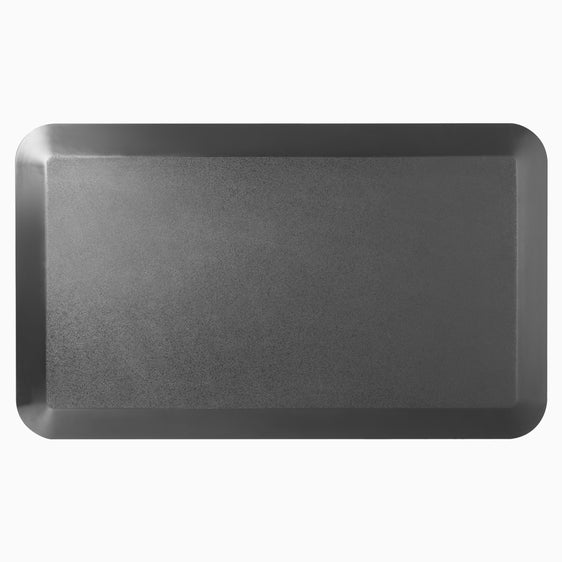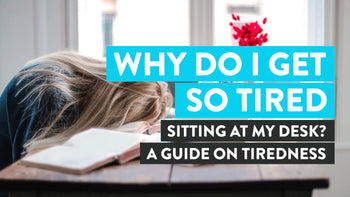
News
Why Do I Get So Tired Sitting at My Desk? A Guide on Tiredness
Hayden AdamsSitting may not seem physically taxing, but feeling tired after a full day at the office is common. There are several potential causes of your fatigue at work.
The causes could be mental, physical, or environmental, but you don't have to suffer the exhaustion.
Making a few lifestyle changes might just solve your low-energy equation. We'll tackle causes and solutions to why you feel tired while sitting at your desk here.
Physical Factors Contributing to Tiredness

These issues may be why you suffer from physical exhaustion in the workplace.
Poor Posture
Bad posture is a common contributor to workplace fatigue. Though it doesn't take much energy to sit in one position, you'll eventually tire yourself out by sitting in the wrong position.
It may not seem like a major issue initially, but having a bad sitting posture can lead to other issues like back pain and rounded shoulders.
One part of good posture is ensuring your head's aligned with the rest of your body. Specifically, your shoulders should be directly below your ears.
Keep your feet flat on the floor, lean back in your seat, and bend your elbows at a 90-degree angle. While sitting down, lean slightly backwards at a 120-degree angle to mimic your spine's natural curve.
Muscle Imbalance and Stiffness
Your neck and shoulder muscles may feel stiffer because your sitting angle forces you to strain to see your computer or cellphone display.
The body has two kinds of skeletal muscle fibres; slow- and fast-twitch muscles. Maintaining good posture will use slow-twitch muscles and cost minimal energy.
However, if you consistently have poor posture, you'll put excessive strain on your body's fast-twitch muscles to compensate.
Regularly straining your fast-twitch muscles will cause you to feel more tired and cause stiff muscles.
You can also counter muscle stiffness by taking quick breaks. Stretch your legs and arms while on break to keep your blood flowing.
Reduced Blood Circulation
Another cause of fatigue on the job is blood flow problems. Blood flow, or hemodynamics, can be hampered when sitting down because your blood pressure spikes when working consistently.
You can get your blood flowing by taking frequent breaks. You don't need to do anything strenuous; simply taking a quick trip to the bathroom is enough.
Apart from circulation, you might be experiencing fatigue in the office because of your shallow breathing habits. Improper breathing can lead to low oxygen levels, causing fatigue.
Oxygenate your brain and give yourself more energy to face the day by breathing deeply. Expand your stomach as you breathe to take deeper breaths.
Eye Strain and Computer Vision Syndrome
Sitting down and staring at a desktop monitor for a full shift daily doesn't seem to cost much energy, but it's common to be tired after your shift.
Staring at screens will commonly lead to eye fatigue. That's because you'll typically blink less frequently while concentrating on a task, leading to eye fatigue or eyestrain.
Eye strain leads to headaches which will eventually leave you feeling tired. There's also Computer Vision Syndrome or CVS.
CVS is, in essence, eyestrain caused by prolonged screen usage and can be treated with regular breaks or specially-tinted glasses.
You can also treat it by moving your computer's monitor beneath eye level. Adjust its angle so you're looking slightly downwards for comfort.
{{ spec_single_monitor_arm }}Ergonomic Challenges at the Workplace
It's difficult to be productive if you're starting to fall asleep at your desk, and several things may be causing your lack of productivity. The first is a cluttered work surface.
Too much clutter on your table gives your eyes more to process daily and makes things harder to find amidst all the rubbish.
Clearing up your workspace can solve your productivity and eye fatigue issues. Only leave the essentials like your desktop setup and any important to-do lists.
But if you're still low on energy after cleaning up your workspace, you might need to adjust your chair. Many sitting problems can be traced back to an uncomfortable chair.
Adjust your office chair so your hips and knees are levels; otherwise, you can prop up your feet with a footrest.
{{ spec_cushioned_foot_rest }}Environmental Factors Affecting Energy Levels
You may be feeling tired because of your environment. Here are a few factors that could be sapping your energy.
Lack of Natural Light
Spending long periods inside an artificially-lit office and sitting down for long periods can dampen your energy levels.
You can combat this by getting a dose of natural light. Take a break from your research and tasks; walk outside your office to soak up some sun.
Don't worry if it's cloudy, either; walking outside will improve your mood and feel energised afterwards.
Dim the Lights Before Going to Bed
While artificial light is useful when working overtime, it can trick our brains and throw off our sleeping schedule, causing us to feel tired the next day.
Turn off any bright white lights in your room before heading to bed. Unwind with a warm, dim light like a reading lamp before sleeping.
Temperature and Air Quality

Your fatigue may be linked to the weather outside and the air inside the office.
It's common to feel exhausted when it's hotter or more humid outside, but that's not a problem if you're working inside a building.
Once inside the building, the issue turns to air quality. If you're constantly tired at work, check whether your office's ventilation system works properly.
A poorly-ventilated building can cause you to breathe in contaminated air, whether the source is outside smoke or paint in your office.
SAD
You may also be experiencing Seasonal Affective Disorder, or SAD, which tends to hit hardest during the change of the season.
SAD is more common during the winter months but can occasionally affect people during spring and summer. Take a moment to manage your SAD symptoms before they worsen.
Noise Distractions
An excessively noisy environment can overstimulate the nervous system, causing you to feel tired. That's on top of being plain distracting!
Note that distracting and tiring noise isn't limited to the workroom; too much noise will make sleeping harder and lead to less energy the next morning.
Take care to match know your limits for acceptable noise limits; actively ignoring workroom noise costs energy too. Don't be afraid to ask your colleagues to tone it down.
Mental and Emotional Causes of Fatigue
We've discussed several external things that could be sapping your drive, but your mental state can also induce fatigue.
Cognitive Load and Mental Fatigue
A lack of mental energy may cause fatigue because you're overloaded. If you've taken on too many tasks, you'll run into mental exhaustion eventually.
Concentrate on each assignment in order and remember to pause after finishing one.
Stress and Anxiety
Processing too much visual information at work can lead to negative feelings like stress and anxiety.
Once those emotions reach their boiling point, you'll be tired. Set clear times for answering emails.
Take time to step back from work if you're feeling overwhelmed, and return once you're ready.
Boredom and Lack of Motivation
A long day of plugging away at work can also deplete your energy.
Your skills might be misapplied, or your work isn't satisfying. Speak with your superior and ask for different, more challenging assignments.
Lifestyle Factors Impacting Alertness

Your sluggishness at the office might be caused by other things in your life. Here are a few probable causes.
Sleep Quality and Quantity
If you always feel tired at work, the first thing to ask yourself is, "Am I getting enough sleep?" Insufficient or poor-quality sleep can seriously drain your energy, and lead to fatigue come morning.
Start by getting a good night's sleep. This can heal your body without having to resort to other methods.
Aim for at least eight hours of sleep per night. Prepare for bed properly by turning off all screens at least an hour before you turn in.
Diet and Hydration
Consistently feeling tired may be an indication of a poor diet. As you can imagine, eating properly can make all the difference, especially if you're used to sugary snacks and other junk foods.
This also applies to anyone who doesn't eat a solid breakfast to start the day. An excellent way to ensure sustained energy is by eating a full meal before heading to work.
Remember to stay hydrated at work! Dehydration will lead to feelings of sleepiness and fatigue. Keep water on your hands at all times and eat more fruit to avoid dehydration.
Exercise and Physical Activity
Regular exercise gives you a quick energy boost at work; it may seem counter-intuitive initially, but listen first.
Regularly exercising can help improve your blood circulation, increasing your body's oxygen supply. A larger oxygen supply means more energy.
You don't need to engage your entire body with a full workout; you can exercise while sitting at your desk and doing some physical activity on the job.
Aim to move around at least once an hour. Try moving more during your breaks, even just to the water cooler or bathroom; this can stimulate you and cause you to feel less tired.
WARNING: Don't overexert yourself in your downtime. Otherwise, you'll loop back around and experience physical exhaustion.
Tips to Prevent Tiredness While Sitting at a Desk
Follow these tips to feel fresh and rejuvenated in the mornings!
Regular Breaks and Movement
Your work may get monotonous and tiring, so it's time for a quick pause. Don't worry about your productivity because your body needs the rest.
You may become less productive, but make an effort to get up from your workspace and take a quick walk around the office.
Taking frequent breaks and moving your body will help keep the blood flowing and stop you from consistently feeling tired.
Proper Workspace Ergonomics
Proper ergonomics can make a big difference at work and stop you from feeling tired despite sitting down for extended periods.
Comfort helps breed productivity. Ensure your desk isn't too cramped, and don't keep things under the table.
You can get a standing desk to bypass the issues of sitting down for long periods. It's also a good idea to compare standing vs.sitting desks before settling on either.
Time Management and Focus Techniques
Your consistently low energy may affect your ability to stay on task, reducing your concentration on the job.
Try the Pomodoro technique to prevent getting tired. Work on something uninterrupted for 25 minutes, pause for 5 minutes, then repeat the process.
Stress-Relief Strategies
Mental tension may exacerbate your body's tired state, compounding your problems. If you're feeling stressed at work, distance yourself from the problem.
Before snapping at someone, take deep breaths before responding. Don't use excess energy by stressing out.
When to Seek Medical Help

Hopefully, Your condition will improve once you've tried the above tips. However, if you're still running low on energy, it may be time to schedule a visit to your GP.
Possible Underlying Medical Conditions
It may be time to lose weight if you're consistently tired at work. Being overweight is naturally tiring and costs more energy; it can raise your blood pressure.
There's also hypersomnia or excessive daytime sleepiness, which manifests as low energy. Make sure to get enough rest outside of work.
Sleep Disorders
Your fatigue may manifest as a disrupted or irregular sleep cycle, which will progress past, impacting your work and begin affecting the rest of your body.
You should check whether you have narcolepsy, which leads to exhaustion at all hours.
Mental Health Concerns
Excessive worrying on the job may be a sign of work fatigue, which can eventually lead to burnout. Some other symptoms of work fatigue include low motivation and consistently being tired.
You can avoid work fatigue by leaving your problems at the office and prioritising personal time once you're off the clock.
Frequently Asked Questions
Find out why you might have lower energy levels at work here!
Why Do I Constantly Feel Sleepy at Work?
Different factors can cause work fatigue, but two of the most common causes are lack of sleep and work fatigue. Prioritise going to bed early and minimising screen time before going to bed.
Maintain a strict work-life balance to give your brain enough time to recover and re-energise before and after shifts.
Can Staring at a Computer Screen All Day Make You Tired?
Yes. Consistently staring at screens can lower your energy and give you "Computer Vision Syndrome."
CVS is common whether you're doing intensive research or demanding concentration, but it can be alleviated by following the 20-20-20 rule.
Every 20 minutes, take a quick break and look at something 20 feet away for 20 seconds. This will help your eyes rest a bit.
Do Ergonomically Designed Chairs Help Prevent Tiredness?
An ergonomic chair can make having to sit down for a full day easier and prevent fatigue. They can also prevent you from feeling tired by helping you maintain proper posture.
Look for chairs that provide proper lumbar support and support your spine's natural curvature, taking the pressure off your body and making sitting more comfortable.
How Can I Improve My Focus and Energy Levels Throughout the Day?
Unfortunately, our brains aren't designed to stare at a screen for hours. However, a few lifestyle changes can help improve your concentration.
Keep up your energy at work by staying hydrated and reducing cigarettes. Don't drink large quantities of coffee, and don't drink anything caffeinated after 2 PM to avoid throwing off your sleep schedule.
Fit time for exercise into your schedule; even a quick walk around your office building after lunch will help.
Is It Normal to Feel Tired After Sitting at a Desk for 8 Hours?
Yes. Sitting down for a short period of time should be fine, but it's different after a full shift.
Despite the lack of energy involved, it's common to feel exhausted after having to sit down for a full work shift.
Sitting down for so long can lead to pain and fatigue, especially if you remain sedentary even in your off-hours.
Conclusion
If sitting in your cubicle tires you out, you could be dehydrated, lacking sleep, or under excessive mental load. It's important to find the source of your problems.
Several things can make you feel physically exhausted while sitting down at work, but the simple changes outlined above can benefit your body given enough time.
If your signs and symptoms worsen, it's time to call a doctor about your issues.
About the author

Desky
Work better. Be more productive.

